#ed hunt
Photo





Starship Invasions (1977)
#starship invasions gif#70s sci-fi#b-movies#UFOs#robert vaughn#70s movies#ed hunt#canadian movies#flying saucers#hal roach studios#seventies#1977#gif#chronoscaph gif
224 notes
·
View notes
Video
youtube
Suite 16/9th Floor | Cybotron | Implosion | 1980

Starship Invasions | 1977
48 notes
·
View notes
Text


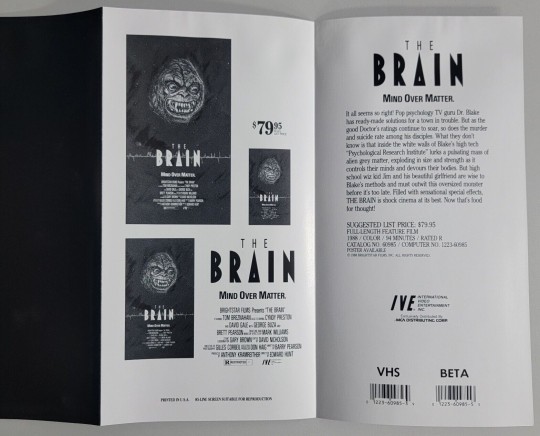
22 notes
·
View notes
Text










The Brain (1988)
"There have to be some sane people left, right?"
#the brain#1988#canadian cinema#horror imagery tw#horror film#ed hunt#barry pearson#tom bresnahan#cynthia preston#david gale#george buza#christine kossak#bret pearson#susannah hoffmann#bernice quiggan#justine campbell#robert king#kenneth mcgregor#harry booker#steve mousseau#vinetta strombergs#richard gira#wendy springate#paul zaza#underwhelming monster mash from brave canadia‚ which mostly drew me in bc of David Gale (Re Animator's unforgettable head in a box)#alas he doesn't get a lot of screentime (although he does get to briefly do his disembodied head shtick again). some relatively#decent practical fx and a team of likeable young protagonists keep this from being a dead loss but it's just all a bit tired and unoriginal#this did end up accidentally being my first xmas movie of the season‚ tho. nobody mentions it at any point but decorations and#christmas trees are present in the background of pretty much every scene
10 notes
·
View notes
Text
On June 25, 2016 Alice Sweet Alice and Bloody Birthday were screened as a double-feature on TCM Underground.
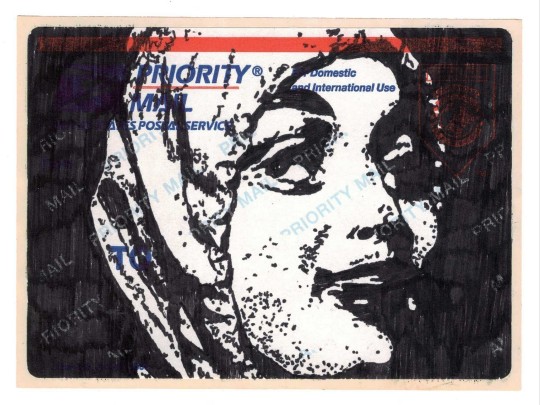
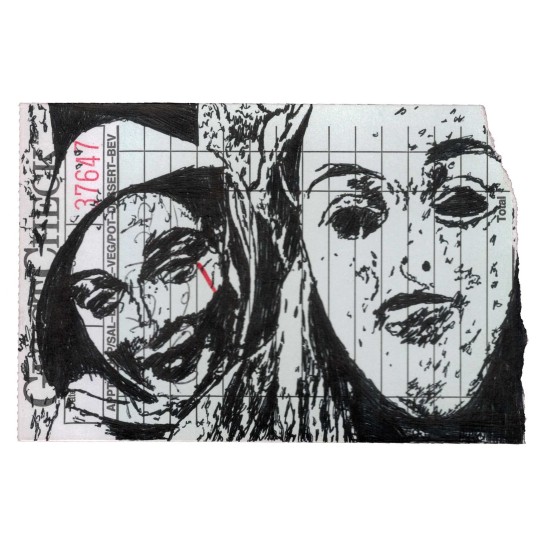
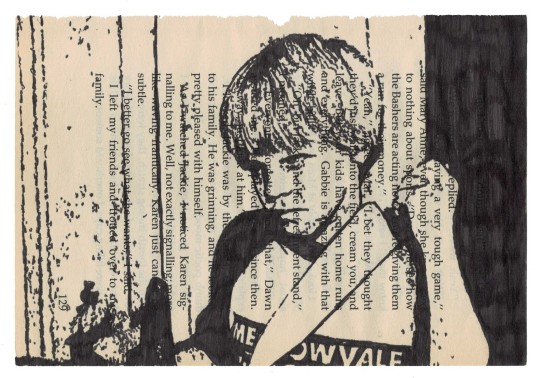
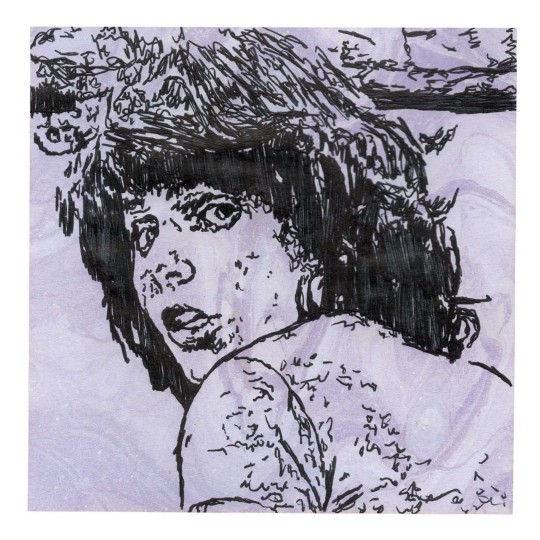
#tcm underground#alice sweet alice#bloody birthday#alfred sole#ed hunt#horror movies#horror#slasher movies#slasher#horror art#slasher art#80s movies#1980s#cult cinema#fan art#double feature#movie art#art#drawing#movie history#pop art#modern art#pop surrealism#portrait#cult movies#cult film
2 notes
·
View notes
Text
Cult Sci-fi The Brain Getting 101 Films Black Label Treatment
Cult Sci-fi The Brain Getting 101 Films Black Label Treatment
@101FilmsUK #blacklabel #cultfilms #TheBrain
We love cult films here at The Peoples Movies and so do 101 Films. In August they will be releasing cult sci-fi horror The Brain (1988), an extra-terrestrial overdose of cerebral terror and media mind control, and a throwback to the sci-fi movies of the ‘50s from director Ed Hunt (Bloody Birthday), available on Blu-ray for the first time in the UK and title 027 on the 101 Films Black…

View On WordPress
2 notes
·
View notes
Text
Watched Today: The Brain (1988)

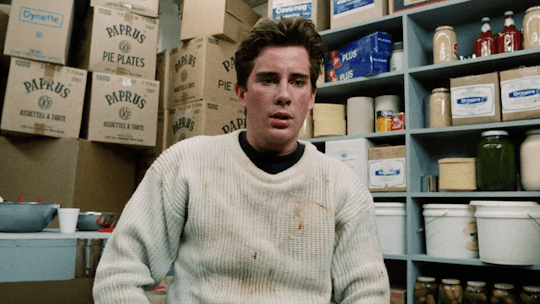
0 notes
Text

Starship Invasions (1977)
dir. Ed Hunt
0 notes
Text
I love how Ed treats Stede so gently. He's always so careful with him. He has this special soft voice he only uses with Stede, when they kiss he cradles Stede's face like he's the most precious thing he's ever held.

Ed doesn't know yet that Stede has probably never felt love before him. He doesn't know that Stede has never been given such care in his entire life. But still, his instinct is always to give Stede all the gentleness he can muster.
It's all the more poignant because Ed doesn't have a blueprint for this. He was raised in an abusive household and grew up in piracy, famously a culture of abuse. Many of the times he's cared for people, he's had to watch them get hurt in front of him (his mom, Felix the cabin boy, etc.). But this reaffirms that even though he grew up with his terrible abusive father and then Hornigold as examples of how men should act, Ed's instinct is never violence or even roughness. It's to treat the man he loves with gentleness and care and hold him with all the love in the world.
#ofmd#our flag means death#i'll never not be insane about this#if you think ed's destined to become abusive then i'm hunting your racist ass for sport
601 notes
·
View notes
Text
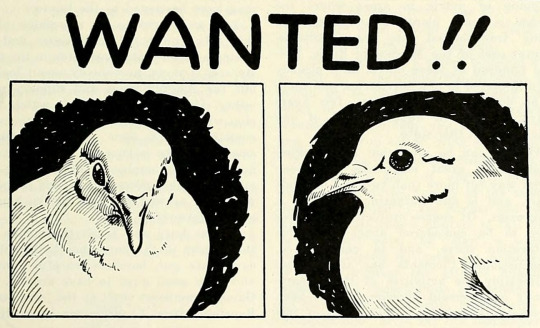
Louisiana Conservationist. December-January 1950-1951. Illustration by Ed Dodd.
Internet Archive
#birds#doves#Ed Dodd#we're going 2 pretend this isn't about hunting and these are dove mugshots for a bird on the run
903 notes
·
View notes
Text

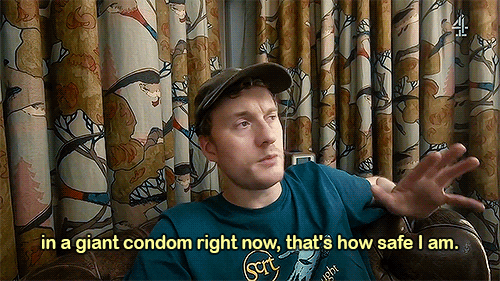
#james acaster#celebrity hunted#he means this as a diss against the hunters but i choose to read it also as 'ed makes me feel safe' 💜#james
83 notes
·
View notes
Text
“guys like blackbeard, they live for adventure!” my dude this guy wanted to take a heckin nap. if you’d stripped him out of that leather and put him in one of your fussy nightgowns and took a lil sunlit nap in your cute lil daybed with him you guys could’ve been making out before roach hit the dinner bell and married by the next morning
#smdh#miscommunication station these two#ofmd#blackbonnet#gentlebeard#don't get me wrong ed IS charmed by stedes effort with the treasure hunt once he realizes what's happening#but there was a sleepier way
2K notes
·
View notes
Photo

MST3K | 1307 | Gamera vs Jiger | 2022
#The Brain#Ed Hunt#Deanna Rooney#MST3K#Gamera vs Jiger#80s horror#practical effects#horror#hangry#Canadian horror#nomnomnom#Hammersmith Horror
107 notes
·
View notes
Text
-★·.· EDWARD SPEELERS -- free pack !!



ʚїɞ the source link will redirect you to [ 336 gifs ] of Ed Speelers as James Thomas in Netflix's Irish Wish. All these gifs were made by me from scratch don't edit, redistribute or claim as your own. if you like them, shared them by giving reblog or like. thank you !!!
★·.· TW: alcohol, kissing, fighting
#ed speelers gif pack#edward speelers gif pack#edward speelers gif hunt#edward speelers gifs#gif pack#gifsociety#supportcontentcreators#fcxdirectory#gifpacknetwork#dearindies#userdevon#usermina#mine ★·.·
63 notes
·
View notes
Text
Lore: Life in Faerûn, Part 1
Disclaimer & Other Stuff
[tldr: D&D lore is a giant conflicting mess. Larian's lore is also a conflicting mess. You learn to take what you want and leave the rest]
Abeir-Toril
Why it's called the "Forgotten" Realms
History | Time & Festivals | Lexicon [1] [2]| Languages | Living in Faerûn [1] [?] | Notable Organisations | Magic | Baldurs Gate | Waterdeep | The Underdark | Geography and Human Cultures
---[WIP]
---
Demihumans in common society (ie human society); common is not a daily language; the postal service; some stuff about gender, gender roles and body modification in the Realms; social strata... Plus some details about other things - most of which will be built on in other posts.
Also featuring; what to do with your leisure time in the realms: like literature, theatre, cafés, where to go clubbing aaand the festhalls.
Education: church school, rich idiots at academies, bardic colleges, etc.
And how good medicine is on Toril, if you can't find a spellcaster to heal you. Baths are both mandatory and freely available, we shall have no unwashed peasants in this setting.
-----
Humans are the dominant peoples of the Realms, and the vast majority of cultures one will find oneself in are human cultures. Nine-in-ten people are human, with the one remainder being one of any of the eight non-humans (some of whom are more commonly encountered than others).
Most of what is said here refers to human lands and cultures (which is 99% of the world anyway), and non-human cultures I'll cover in their own write ups.
Humans mostly know the other "common" races - elves, dwarves, halflings and gnomes, whom they call "demihumans" or "humanoids" - as trade partners or as neighbours belonging to minority groups within their home cities.
Demihumans are mostly accepted as fellow citizens within human lands, although the elves are often viewed with mistrust due to the stereotype that they are fickle fey creatures who get uppity when you start tearing down nature and building your cities in their lands. This tolerance is not extended to people who are categorised as monsters, including the Underdark races, tieflings and "goblinkin" - a category that includes orcs, goblins, bugbears and so forth. Half-orcs usually find themselves being sorted into this category, and most have to deal with a lot of respectability politics in order to be accepted into their human family's lands. Elves and dwarves also share this hostility towards orcs, and have a long history of wars with them.
The hin (halflings, to non-hin) and gnomes who find themselves living in human cities are accepted by being seen as useful in the eyes of the Big Folk. Both are known as being useful as couriers, tinkers and repairmen, and for running laundromats. Gnomes in particular are the chief inventors and innovators of the realms, and due to their tendency to be quiet and helpful they are heavily overlooked by others.
Dragonborn are a rare sight, but have mostly built a reputation of respect.
Most humans do not know much about non-human cultures, knowing them only through story, rumour and whatever personal experience they have. Stereotypes are often taken at face value, and being more used to the likes of lightfoot halflings and silver elves, the average person would probably be quite surprised by the different cultural attitudes and colder receptions they'd get from, say, ghostwise halflings or gold elves.
Outside of cosmopolitan areas, where your neighbour can punch you in the face for stupid comments, humans feel no particular pressure to be respectful to demihumans and foreigners, and would roll their eyes at what their Earth equivalents would call "political correctness" if you told them off.
On the nonhumans' end, humans are watched with concern, as they do tend to cause their fair share of disasters that rapidly become everyone's problem.
Many of the people of Faerûn move around a lot; religious pilgrims, traders, immigrants and those bloody adventurers transcend the boundaries of culture and country on a daily basis. For this reason, the Common tongue was invented.
People do not use Common as a daily language, though certain terms may enter daily speech as loanwords. Common is a pidgin trade tongue that grew out of Old Chondathan and Alzhedo (mostly the former), the language spoken in Central and Western Faerûn. It's a simple language, easy to learn and spread around, and useful for exchanging basic information with people from other lands who don't share a language with you - but it's useless for daily life. While it has a written form, most people can't read or write in it.
-
Maps are rare, and if you want an accurate map you'll usually find it in the possession of local rulers and temples (which supply the Realms with most of their scribes and such). Each realm has a book of maps (atlas) available for the use of their military and other officials.
-
If you want to send a package or letter in the Realms, temples often double as a post office. The delivery will be sent from temple to temple until it reaches its destination and will be delivered to the addressee,
-
Most of the Realms does not consider men or women to be inherently lesser or greater than the other and all genders are equal under all laws, though they do have traditional gender roles that it's believed most are better suited for - or at least areas where one gender is more represented than the other. Women dominate in trade and domestic areas, while men dominate in war and crafting, however it isn't considered immoral or unthinkable to see somebody defying the gender norm. If your daughter picks up a sword, learns to use it and runs away to fight dragons your primary concerns are less "oh no, a girl is fighting" and far more likely about the threat to her life and who in the hells is going to help you run the family store now if she has no siblings?
Gender roles can be looser or more rigid, depending on where in the Realms you go. Some realms may be Patriarchal or Matriarchal, but it's not the rule and some of these places have grown more egalitarian over time.
Organisations do not generally discriminate in any way based on gender when it comes to their members.
The term for transgender in the Common tongue is sildur.
(Elven: Alur, Dwarvish: Thulol, Gnome: Thoulal, Hin: Zalshaer)
Transmutation magic is the primary form of body modification and transitioning on Toril, although apparently most people will turn towards divine magic before trusting a wizard to do it. Mages are expensive to hire and viewed with some measure of fear by the common person.
You can petition the gods at their temples for body modifications in return for sufficient offerings, if you don't trust wizards. Be that "I want to be blond" or "I don't want these breasts." Exactly how much and what the god is going to expect in exchange for this varies on the faith of the petitioner and the past relationship between them and the god.
Naturally, certain gods are favoured above others for this kind of thing. You're more likely to petition Sune (love and beauty) or Liira (joy and freedom) than the likes of Bane and Shar.
---
Faerûn has its social classes, defined by wealth and family lineage, but they do not have true feudal or caste systems, or any system where upwards social mobility is totally impossible (though the upper classes will certainly do their best to prevent that. (Hi, Waterdeep, I'll give you your own post)). Any commoner could theoretically gain a noble title to the distress of the hereditary nobility. In Sembia if you have enough coin, you can just give yourself a title and everyone has to shut up and go along with it, because money. And that's how most of them got theirs anyway.
Slavery is illegal in all of Faerûn with the exception of Dambrath, Thay, Mulhorand and Unther. The slave trade still exists underground elsewhere, and is quietly overlooked in some places, but it is considered evil by the world at large and somebody found to be a slaver will be met with violent reprisal.
Nobles are... well, nobles. They're rich and have powerful friends and the law is far nicer to them than to the lower classes. They're mostly corrupt and constantly scheming against each other. Their kids go through rebellious stages and do drugs and cause chaos for the commoners and join weird cults.
Landownership outside of kingdoms and such with codified property law generally follows the rules that you can do what you like with whatever land you hold; charge rent, put up signs, make the rules... but you own it only by the tolerance of your neighbours. If they don't like the way you do things, you're quickly going to find yourself in trouble. Also led to my one of my new favourite quotes:
“If you set up an inn and then murder everyone who stops there
and keep their goods, even if that’s morally acceptable to you as a devout follower of Bane or of Cyric, it will not be suffered to stand."
Yes! Screw you, edgelord!
Crime and punishment varies depending on where you are, but carries fun stuff like fines, brandings, prison labour, floggings, stockades and executions.
I think the concept of the law, "justice" and court proceedings will be left for another post where I will passive aggressively judge a young Astarion and his corrupt magistrate ways.
-
Leisure:
Literature:
Literacy is a hit and a miss in the Realms. Some people prize literacy, and it's common enough that broadsheets and newspapers are in business and PCs can read and write by default; but there are still others who can't and couldn't care less if they can't read some bard's chicken scratch. The ruling class in particular gets a little nervous about the idea of a fully literate populace, since that would allow them to be educated, and better suited to communicate with each other and get ideas.
That bit varies though. Cormyr, for example. has encouraged its population to learn to read and get educated for several reasons including making it harder for the country to be infiltrated by enemy spies.
Chapbooks are serially published cheap little paperback things. They contain all sorts of things, like children's tales, donated recipes, political opinions, random bits of advice from people on trades and such, gossip from other countries disguised as news, memoirs, and smut.
The rating of that last bit varies in rating. In Waterdeep they favour romantic stories over sex and over in Amn they're just flat out publishing porn about the goddesses of love and sensuality, Sune and Sharess - with the full support and encouragement of their churches.
The most popular genre of actual novels is the personal travel logs of explorers and other wanderers. The Realms are flooded with such books.
There are also non-fiction books available. Philosophy (which is written through the lens of religion, as a rule); books on rulership (controlled by the noble class, sometimes outlawed); and on business (which are subject to attempted control by the likes of merchant guilds)
Book printing is a sketchy business. Authors may one day discover that there are whole new best selling reprints of their books they've never been informed of (or paid for). Plagiarism is also a common problem.
Theatre:
Aside from actual theatres, there are a few ways to catch a play.
Traveling caravans are known to sport a few actors, who can make a bit of extra money for the group by putting on a performance as well as advertising the stock their caravan carries (product placement everywhere). Most bards have the "classic" scenes of famous plays memories, so as to perform them on demand.
Theatres often hire doppelgangers, as their shapeshifting ability is very useful in realistically portraying monstrous characters too dangerous to actually hire. Of course there's also this little issue where your doppelganger hirelings may start killing people outside of work hours, but eh. The show must go on.
There are also puppet shows like Punch-and-Judy called Oldboots - because the shows are actually done by wearing worn old boots on your hands instead of actual puppets.
Establishments:
Alehouses - Pubs and bars, existing primarily for those looking for an alcoholic beverage. The term "barkeeper" is unknown to Torilians, who would refer to them as tavernmasters. The word "mug" and "pint" also do not exist.
Inns and Alehouses don't have menus, you're eating whatever's being cooked.
Dining-house or Feasthall - Known to us as a restaurant. Establishments are also known by the Chondathan word skaethar which is used as a formal term in Common in other parts of the world. In larger inns, one might find a section of the building that acts as a dining-house.
Most of the time the menu is a chalk board on the wall, informing customers what's fresh.
The really fancy ones, visited by the rich (or those who want to seem so) get paper menus printed by machine or made with fancy calligraphy.
Kaeth house - A café.
Coffee is known in the Realms as kaeth or kaethae - or "fireswill", colloquially. The drink is rare and expensive northwards of Calimshan, but is available in large cosmopolitan trade cities, as far North as Waterdeep.
Calishite coffee is taken black with nuts and spices like ginger. Sembian and Chessentan styles of coffee are often mixed with chocolate and liqueur. In lands where coffee is widely known, they tend to have their own drinking utensils and customs around it, but in the north it's just served in tankards.
Hot chocolate is also on the menu.
Teas exist, but are less popular and are seen as a medicinal drinks.
Temples of Liira - The goddess of joy and revelry charges her followers with hosting parties and making everyone they meet is having fun and feeling happy. As such, going to her temples is kind of like going clubbing. The main hall of the temple is a dance hall, with other rooms branching off to include lounges and a well-stocked bar. Liirans also offer dance lessons.
Temples of Sune - As devotees of the goddess of beauty, Sunites are obligated to give you a makeover if you ask, so this is a good destination for a haircut, pedicure or fashion consultation or whatever. As Sune is also the goddess of love, Sunites can also be asked for matchmaking services. The church also sponsors schools and classes teaching all forms of art (including music, song, performance arts, etc).
Festhalls - Try not to confuse these with feasthalls, or you're going to have an embarrassing time.
Ah Festhalls, where to start. They're spaces considered outside of society; everyone leaves their real life, identity, social rank and all of that outside and comes here to just let go for a few hours.
Festhalls will provide you with a warm bed for the night; they'll wash, mend and dry your clothes; they have hot baths and spa services; you can dance to music, or just lounge around enjoying a good drink and some company; it's also something of a casino, where you can play cards and gamble or even just play normal board games or something...
And they're strip clubs, BDSM scenes and specialty brothels! You got a kink none of the brothels can scratch? Festhalls provide and cater to goddamn anything that turns you on, so long as it's legal, safe, sane and consensual.
---
Education:
What counts as an education varies from place to place and depends on what the realm desires of its public. Some places will emphasise the commoners knowing the basics of military drills, the chain of command and such in case of the need for a levy. Other places, like trade centres such as Waterdeep, prioritise maths and literacy.
In most of the Realms - especially in rural areas, a basic informal tutoring involves teaching basic maths, local laws and customs and some basic knowledge of the alphabet and market/road signs.
Most schooling is done by priests, which is free to the public. Unless you're dealing with the sketchier gods or the ones with deeper mysteries, all clergy are also happy to teach everything about their faith when asked. While some may obscure less savoury details, no follower of any god will outright lie about the details of their faith, as that is considered a sin.
If you're not rich you can get a basic education by hiring "low sages" - the likes of book shop owners, hedge mages, retired adventurers and other people with access to information who can share with you what they know. Of course, what they know may not be the most accurate information in the world.
You can also purchase some basic short paperback school books.
Most trades guilds will provide a basic education in that trade in exchange for a coin or two. Although some of this will simply just be "don't do this at home, hire a professional." They also hold classes open to the public now and then.
Schools as educational organisations also exist and are usually founded by bards or monastic orders in large cities. Most schools and academies are simply a handful of ageing, well educated people with a house who provide lessons for enrolled children there - though larger establishments exist.
For nobles there are Academies, which will also teach their children social etiquette and other things the upper class needs to worry over lest their reputation drop so low it falls into the Lower Planes and dies in the River Styx.
Sometimes these Academies are actually just social clubs for young rich idiots to get drunk, do drugs and have orgies in, but that's not so common and gets shut down when it does happen.
While the rich and powerful have the opportunity to send their darlings to Academies, they'd rather not. It's... embarrassing. It means you can't afford a private tutor (or that your darling is a brat with a personality that suggests they're a demon spawned in the Abyss).
Bards are usually trained at Bardic Colleges - these vary in quality and specialty (some may be better for certain instruments, for example).
The only requirements for entry are that one passes an audition, impressing their interviewers enough that they are taken on.
Civic information is typically freely available to anyone who asks for it, and courtiers and scribes are obligated to share the information.
---
Medicine:
Medicine is primarily the practice of demihumans, who've been around for much longer than humans and had more practice. They also tend to hold the market, finding a place for themselves in human lands by offering their services as physicians and herbalists.
Faerûnians have an almost Earth-level awareness of human anatomy; the organs and their function, the function of blood and the cardiovascular system as well as the risks of shock and infections are common knowledge. While the concept of microbes and spread of disease is unknown, the importance of hygiene in staying healthy is known, and there are establishments that offer baths and laundry services to travellers and homeless people. The filthy unwashed peasant is not a thing on Toril.
Plagues are not as disastrous as they were in Earth history - most households and communities will avoid being totally wiped out, but they are terrible and mysterious things and the afflicted are avoided.
Medicines as we know them - called "physics" - are expensive and hard to get ahold of, and most people rely on herb lore or priests like clerics and druids. Herbal anaesthetics are widely used. Cauterisation is a common practice, and many people have scars from it.
Most trade towns have apothecaries, be they part of a shrine or a business.
Physicians are often in conflict with divine spellcasters, since they're competing over the same market.
Some diseases are known by different names in the Realms:
Windchill fever - Pneumonia
Sallar - Typhus
Whitewasting - Leprosy
Foamjaws - Rabies
And a heart attack is known as a heartstop.
111 notes
·
View notes
Text
#class of 1984#ed hunt#horror movies#horror film#horror thriller#horror art#horror#tcm underground#dystopian movies#dystopian films#dystopian science fiction#dystopian sci fi#science fiction art#science fiction movies#art#sci fi comedy#science fiction comedy#movie art#drawing#movie history#pop art#modern art#pop surrealism#cult movies#portrait#cult film
1 note
·
View note